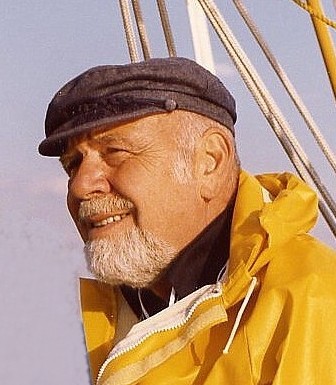Girolamo Savonarola, 1452 ~ 1498
Intro: Girolamo Savonarola ended the glory of the Renaissance in Florence by ordering the burning of art and books. Savonarola was a Dominican priest (an order of monks) and the ruler of Florence from 1494 until his execution in 1498. He was born on 1452 into a family of physicians but Savonarola wanted to be a monk. His reputation as a great preacher attracted many followers. Savonarola became a ruler of Florence with good intentions but, with those intentions, Savonarola made many enemies and he had the same fate as the books and other "vanities" he burned.
Family and Childhood: Savonarola was born on September 21, 1452 in the city state of Ferrara. His parents were Niccolo Savonarola, a physician, and Elena Bonacossi. He was the third of seven children. Savonarola’s grandfather was also a physician and he worked for the Duke Borso d’ Este (the first duke of Ferrara). It was through these many childhood influences that would normally have steered Savonarola toward a career in medicine. Instead, he connected with the Church in his youth by studying the Bible. In addition, he studied famous philosophers like Thomas Aquinas and Aristotle. From his Catholic childhood, Savonarola would soon become a monk.
Education and Early Career: From having a father and grandfather who were both physicians, Savonarola was pressured to be one as well. Instead, he was more interested in the writings of Thomas Aquinas and studying Aristotle. Savonarola studied at the University of Ferrara. There he got an advanced degree in the arts. After studying the Catholic Church for a long time, Savonarola found many reasons to become a monk. One of the big reasons he became a monk is because the girl he loved rejected him so he adopted a life of serious religious reflection as a way to deal with the rejection. Finally, in 1475 he achieved his goal by becoming a Dominican priest.
Background: During the time of Savonarola’s adulthood, Italy was experiencing the Renaissance. There was an explosion of art and music, both of which Savonarola preached against. The pope of the time was Alexander VI, who was one of Savonarola’s enemies. At the time, the people of the Catholic Church were praying for the wrong things. For example, instead of praying for God, they prayed for something that didn’t have as much meaning like to win a sport match.
Connection to the Medici: It seems as though another one of Savonarola’s enemies might have been Lorenzo de’ Medici. He thought that the Medici held too much power over Florence, and that the people should have more power. Also, when Lorenzo was dying, he asked Savonarola to help him repent and give him last rites, because he thought that Savonarola was an honest man. Savonarola asked him to release power over Florence. Lorenzo refused to release power and, as a result, Savonarola refused to give him last rites. After the Medici lost its power, Savonarola began his rule over Florence.
Preaching and Leadership Style: Savonarola was one of the great preachers of the Renaissance. Because of this, he attracted many followers. He started preaching at the convent of San Marco. San Marco was the Dominican house in Florence. Many people considered him a prophet because he accurately predicted things that became true such as the death of Pope Innocent III and the fall of the Medici family. When Savonarola became the ruler of Florence he did good things for Florence. This included the opening of a bank called the "Monte de Pieta," meaning "The Bank of the Poor." The bank gave loans to poor people at a low interest rate. Savonarola also liked the idea of democracy and contributed to the idea of Florence’s constitution. But his good ideas were balanced with bad ideas.
Downfall: One of Savonarola’s bad ideas was the "Burning of the Vanities." He sent a group of boys to every house in Florence to ask for "vanities." Vanities are things you have but, don’t need (books and art). Then he would burn it all in a huge bonfire at the town square. Another bad idea of his was that he treated everyone the same and didn’t separate the good from bad. Because of these bad ideas, he was hated by many.
Excommunication and Death: Since many people were scared of Savonarola, they had to do something about him. Pope Alexander VI decided to excommunicate him in 1497. Some of the things that he was charged for were not believing in God, making up prophesies, and secretly fighting against the government. The people of Florence rose up and finally executed him. On May 23, 1498, the people of Florence hanged him on a cross and burned him in town square just like the art and books he burned. He lived a good life, but died as a result of his bad decisions.
Legacy: Savonarola is considered by many Catholics as a great priest and a good leader but his stubbornness led him to poor decisions. Ultimately his leadership even inspired one of Sandro Botticelli’s paintings, the "Lamentation over the Dead Christ." He lived a great life but his poor decisions ended up sealing his fate and ultimately led to his death.







